It’s Giant Tortoise Day.
First stop, the famous Charles Darwin Research Station. The research center helps the National Park Service in their efforts to save Galapagos wildlife. They have a facility that works exclusively to raise tortoises to increase their depleted population.
Their tortoise egg incubator is highly technical...
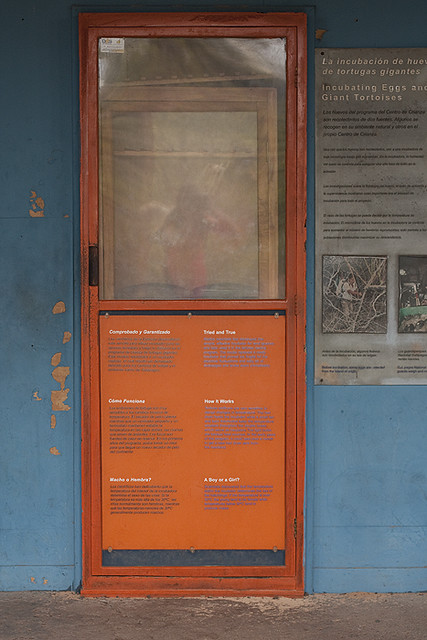
Behind this door is a very small closet like space housing tortoise eggs. On the outside door is an explanation of how it all works:
“Tortoise embryos are very sensitive to abrupt changes in temperature. The hair dryer heats the incubator while a small fan and barn thermostat keep the temperature constant throughout the double boxes, which serve as insulators. The light bulbs are backup heat sources. In the early years of the program, it could take over a month to get a new hair dryer sent from the mainland.”
A Boy or a Girl? Scientists discovered that the temperature within the incubator determines the sex of the hatchlings. If the temperature is over 30°C the young tend to be female while temperatures below 30°C tend to produce males.

It seems to be working.
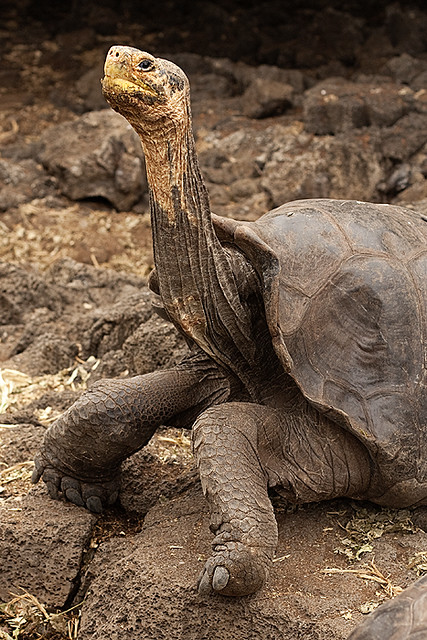
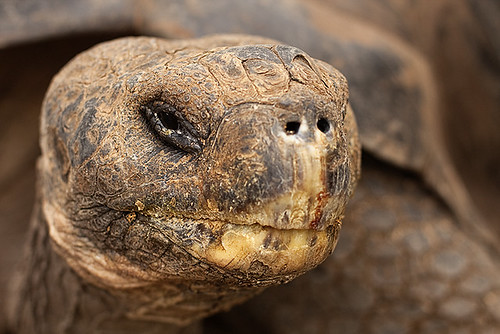
We spent a few hours shopping and site seeing in the island town of Puerto Ayora...
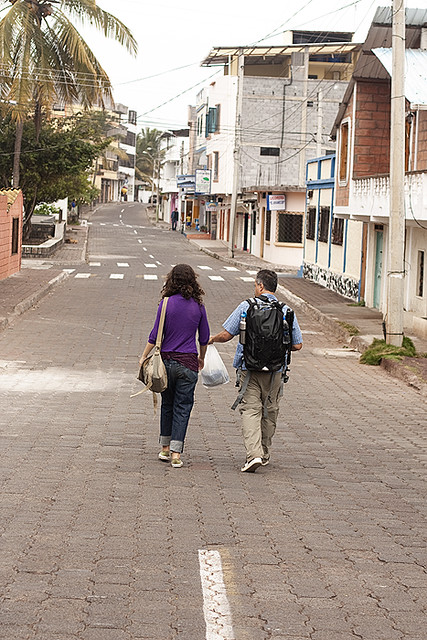
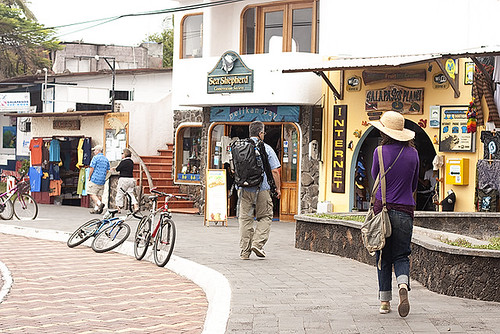
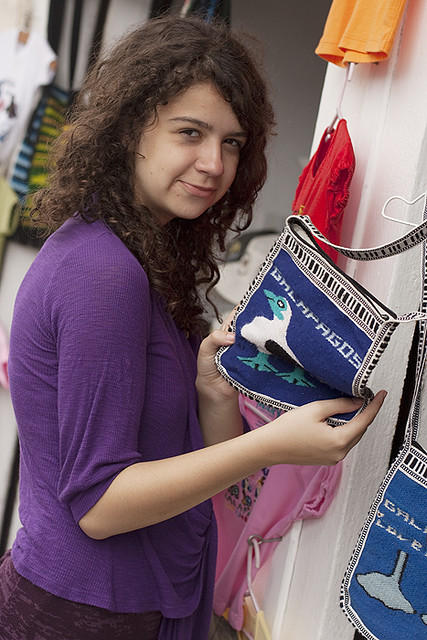
After lunch, we traveled by bus into the highlands to visit the Tortoise Reserve where we searched for giant tortoises in their natural surroundings.
Found one...
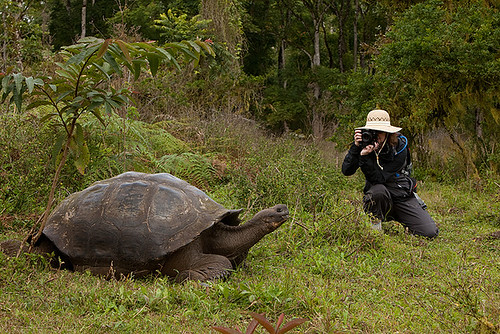
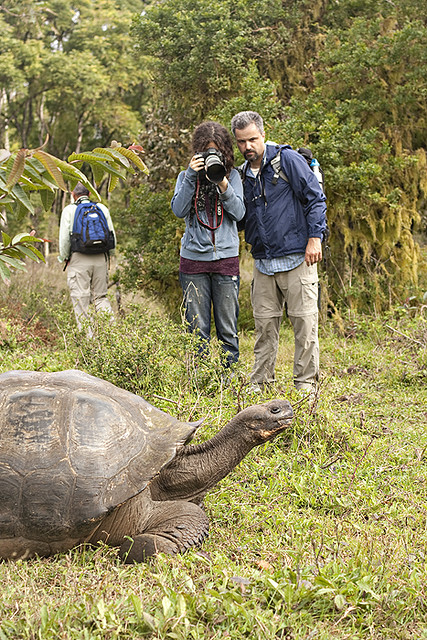
and another...
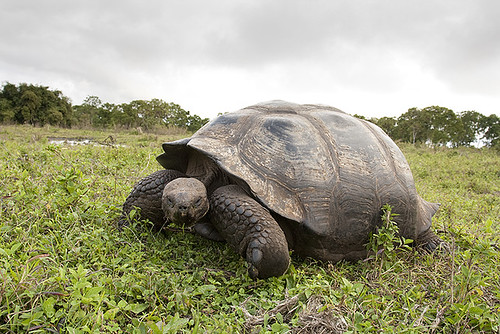
There were so many tortoises here that each member of our group of 16 had their very own tortoise to hang out with.

Galapagos giant tortoises lead a very uncomplicated life, grazing on grass, leaves, and cactus, basking in the sun, and napping nearly 16 hours per day. A slow metabolism and large internal stores of water mean they can survive up to a year without eating or drinking. They generally live to be 100+ years old. The oldest on record lived to be 152.
The tortoises on this reserve are not held captive. They come and go as they please.
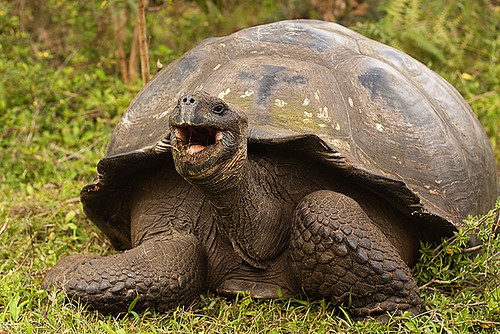
So much history here. If only they could talk. He looks like he’s trying to tell me something.
It’s so much fun to anthropomorphize here.
Next: we visit Isla Genovesa, or as I call it, Bird Island.

2 comments:
I'm just now catching up to your awesome travelogue pictorial. Love the last tortoise...I prefer to think he's laughing at you. :)
Sidenote: was that an optical illusion, or is Izzy almost as tall as her dad?!!
Oh no Susan, he's laughing WITH me! I think that street through Puerto Ayora is a bit sloped to Isabel's advantage, but she is getting closer to her Dad's height. She's passed me up.
Post a Comment